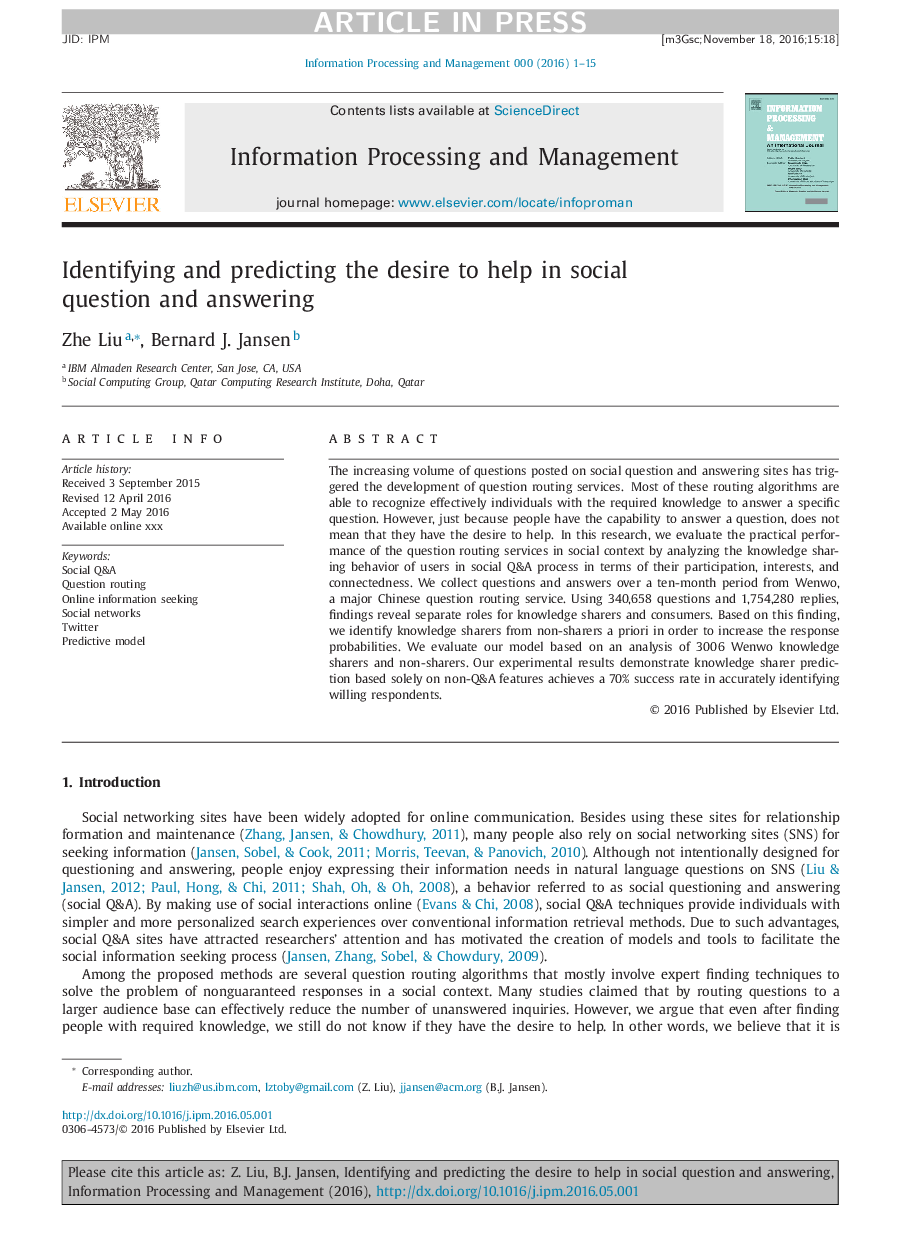| Article ID | Journal | Published Year | Pages | File Type |
|---|---|---|---|---|
| 4966454 | Information Processing & Management | 2017 | 15 Pages |
Abstract
The increasing volume of questions posted on social question and answering sites has triggered the development of question routing services. Â Most of these routing algorithms are able to recognize effectively individuals with the required knowledge to answer a specific question. However, just because people have the capability to answer a question, does not mean that they have the desire to help. Â In this research, we evaluate the practical performance of the question routing services in social context by analyzing the knowledge sharing behavior of users in social Q&A process in terms of their participation, interests, and connectedness. We collect questions and answers over a ten-month period from Wenwo, a major Chinese question routing service. Using 340,658 questions and 1,754,280 replies, findings reveal separate roles for knowledge sharers and consumers. Based on this finding, we identify knowledge sharers from non-sharers a priori in order to increase the response probabilities. We evaluate our model based on an analysis of 3006 Wenwo knowledge sharers and non-sharers. Our experimental results demonstrate knowledge sharer prediction based solely on non-Q&A features achieves a 70% success rate in accurately identifying willing respondents.
Related Topics
Physical Sciences and Engineering
Computer Science
Computer Science Applications
Authors
Zhe Liu, Bernard J. Jansen,
